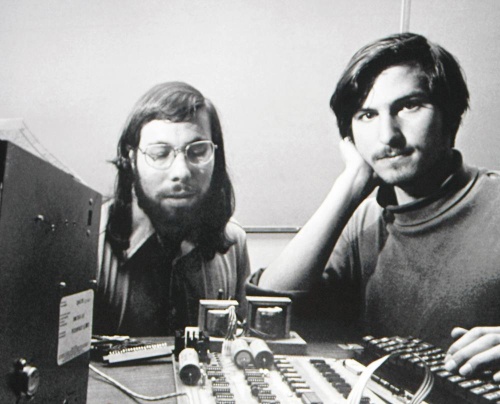The Asshole Correlation
I decided I’m gonna become a badass hacker. I’ll grow into a shiftless blob and drink lots of Red Bull. And I’ll sit at my computer til the wee hours of the night, only getting up to pop another Hot Pocket in the microwave. Maybe I’ll hang out on EFnet. I don’t really want to spend a lot of time coding, cuz that’s hard, but I think I can make up for it by being extra amorphous. That’s what hackers are like, right?
Similarly, aspiring managers should follow the models of highly successful CEOs: Steve Jobs, Travis Kalanick, early Bill Gates, and Ev Williams were all relentlessly greedy assholes. The more ruthless the founder, the more successful the company. Clearly.
Walter Isaacson’s Steve Jobs biography did the world a disservice by bringing to light all the actions Jobs took on his rise to success. Jobs withheld stock options from early team members, threw tantrums, fired employees without warning, all while building the most valuable company in the world.
With a publicized exemplar of such a successful asshole, raging egotists in management positions saw ringing endorsement for behavior they might otherwise suppress.
We don’t often cite the counterpoints: Tony Hsieh, Larry Page, and Elon Musk are genuinely nice people who built just as successful companies. But it’s more fun to talk about the assholes.
In the end, all these people built bajillion-dollar companies not because they were or were not assholes, but because they created value.
[Steve Jobs] succeeded because he was Steve Jobs. He had an uncanny sixth sense about what consumers wanted, an unmatched ability to adapt existing technology and turn it into something new, and a commitment to quality that turned ordinary Apple customers into fans for life. Being an asshole was part of the Steve package, but it wasn’t essential to his success. But that’s not a message most of the assholes in the corner offices want to hear. [1]
The problem with being an asshole is that you end up losing your allies. Jobs was fired 9 years into Apple, at the age of 30, because people finally got tired of his crap. But way back in the early days, Jobs famously screwed his cofounder Wozniak by lying about the payouts they received from Atari so that he could keep the money for himself.
It took Woz a decade to find out. Had he learned sooner, he might have decided against teaming up with such a turd. Then no one would have built the Apple I, Jobs would have had nothing to sell, and Apple as we know it would not exist.
Fred Wilson writes today that being nice pays dividends in the form of reputation. If people like you, they’ll bring you opportunities [2]. As a startup, when there isn’t a lot of capital, people aren’t just the most valuable asset, they’re the only asset.
Being a greedy asshole may generate quick returns, but it isn’t sustainable. Eventually you run out of allies.
See Also:
1. Be a Jerk: The Worst Business Lesson From the Steve Jobs Biography –the Atlantic
2. Be Nice or Leave –AVC



